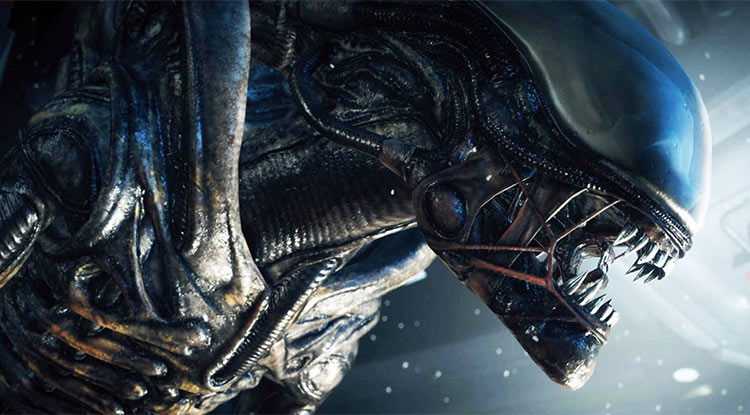Even more frightening, the films imply the inevitable return of the Alien upon being jettisoned into space by Ripley in Alien and Aliens. The creatures do not implode or freeze, but rather flail in defiance of their expulsion – still moving, still alive, even in the deathly heart of deep space. It’s reasonable to assume the Xenomorph will freeze or starve to death, but those familiar with its Lovecraftian heritage know the Xenomorph will do as it did on LV-426 before the crew of the Nostromo found it – it waits.

Also like the extraterrestrials Gods of the “Cthulhu mythos,” the Alien is also an apathetic being. As the android Ash (Ian Holm) says, the Alien is “free of delusions of morality.” It pays no attention to organisms that would not benefit its species’ propagation – Jones the cat, for example – and, while seemingly feral, its actions are calculated enough to suggest a very high intelligence, or at least evolutionary instinct. Upon Ripley’s initiation of the Nostromo’s and LV-426’s self-destruction in both Alien and Aliens, the creatures manage to hitch a ride on her evacuating ships. A sense of self-preservation, even revenge, is prevalent in these choices.
The thought process of the Xenomorph can only be speculated upon, making the creatures seem more unpredictable and scarier than your average Lovecraftian beastie, most of which had actions relegated to chasing and instilling madness in protagonists. This is the crucial difference between the two and what defines the Alien as a truly cinematic movie monster – it is all action.
Where the actions of Lovecraft’s Elder Gods are foretold by dense histories and conjured by worshipping cultist, the Alien is strictly a present-tense terror. Once onscreen, the tension pays off in dividends. Walter Hill, producer and co-screenwriter of Alien, said of writing, “The way you find out about these characters is by watching what they do, the way they react to stress, the way they react to situations and confrontations… character is revealed through drama rather than being explained through dialogue.”
Therein lays the greatest difference between Lovecraft’s world and that of Alien. Lovecraft is mostly atmosphere and exposition, rather than atmosphere and action. This is what has made Lovecraft fiction notoriously difficult to adapt into films – nothing tends to happen in the majority of his stories. There are some exceptions toward the end of his career (among them At The Mountains of Madness), but on the whole the classic Lovecraftian story paints a chilling idea, rather than a chilling yarn.
Alien can be seen as a successful Lovecraftian film because it takes from his chilling idea, and runs with it. Rather than thrusting the focus on the Alien’s origins, the series has allowed the fate of a derelict space craft to exist merely as a background texture, a foreboding threat of what could be if the creatures are allowed to propagate in even the loneliest corner of the galaxy.
Prometheus will, hopefully, answer a great deal of the questions that have loomed over the Alien series for the past 30 years. Still, given the history of the franchise and an overeager Ridley Scott bandying about the idea of a Prometheus 2 in interviews, we can only hope that the film doesn’t forget the influence of H.P. Lovecraft, a writer whose works ensured the inspiration that would drive Alien into the hearts and minds of movie lovers around the world.
From the trailers we’ve seen, there appears to be a strong inkling of Lovecraftian ideas permeating in Prometheus, but whether or not it will be enough to appease the Old Ones watching from that black abyss remains to be seen.









Stay Connected